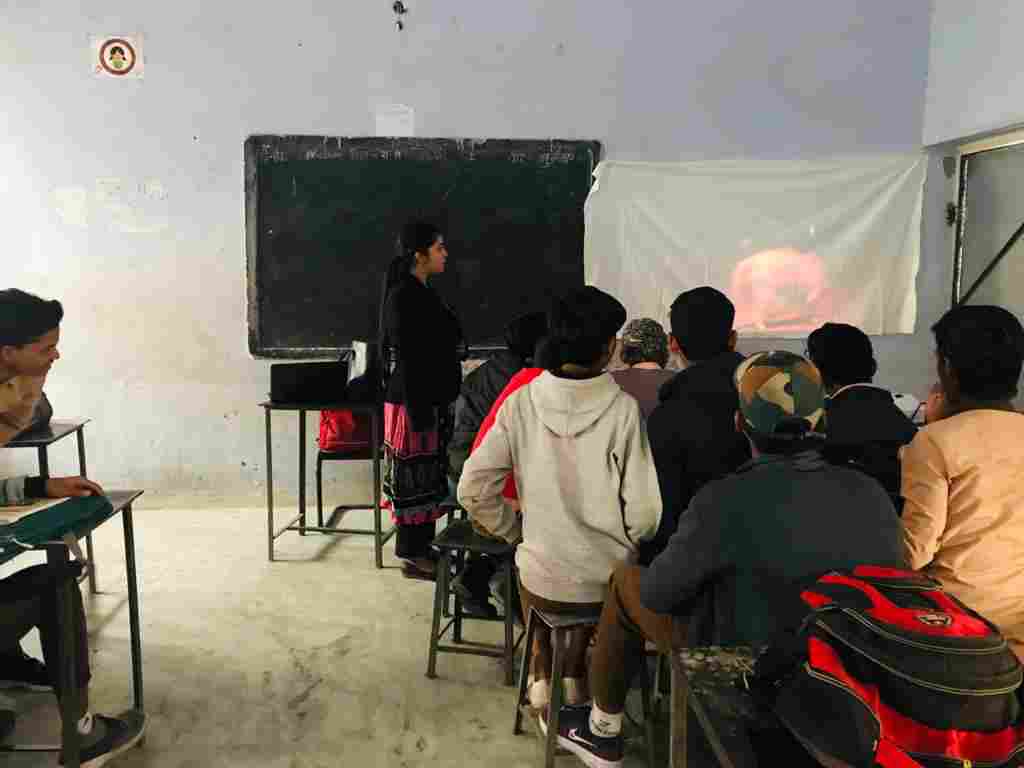Session on Child Rights at Shahid Major Alok Mathur Senior Secondary School in Jhotwara, Jaipur, Rajasthan – January-2020
Child Rights
Children and young people have the same general human rights as adults, as well as specific rights that acknowledge their unique needs. They are not considered the property of their parents or helpless objects of charity, but instead are recognized as individual human beings with rights. The UNCRC Convention views children as individuals and members of a family and community, with rights and responsibilities appropriate for their age and developmental stage. Under the convention, governments are obligated to meet the basic needs of children and help them reach their full potential. This includes the recognition of each child's basic and fundamental rights, including:
- The right to life, survival, and development.
- Protection from violence, abuse, and neglect.
- An education that allows children to reach their potential.
- The right to be raised by and have a relationship with their parents.
- The right to express their opinions and have them heard.
Pre-session assessment:
Who is a child? - Students responded that a child can be defined by their age, who is below 5 years, 8 years or 3 years but not more than 10 years. Some students responded that a child is someone who is stubborn, innocent, naughty, and cute. What are the needs of a child? - Some students responded that a child needs education, playing games, love and care, and good food. Do you think that children have any right? - Students answered in one voice that yes, children also have rights. If yes, give some examples of their rights - Students answered that children have the right to education, the right to play, the right to speak, and the right to have a good environment.
Activity conducted during the session
Jyoti - An Ignite to Education & Child Rights: https://youtu.be/6ztP54FVDic - Jyoti, a slum girl who wants to go to school and achieve something in her life but is not able to fulfill her dreams. In India, the government has so many plans to help such kids, but something is missing..!! A short film on child rights - https://youtu.be/x75T0C7IQt0 - This film illustrates all the needs of a child and about child rights and how adults should behave with children. Cartoons on Children's Rights - https://youtu.be/442yLFwrzs8 - This cartoon film shows all articles of rights of children by UNCRC.
Post-session assessment:
Small introduction to UNCRC and their laws: The United Nations Convention on the Rights of the Child, or UNCRC, is the basis of UNICEF’s work. It is the most complete statement of children’s rights ever produced and is the most widely-ratified international human rights treaty in history.
The Convention has 54 articles that cover all aspects of a child’s life and sets the civil, political, economic, social, and cultural rights that are entitled to children. It also explains how adults and the Government must work together to make sure all children can enjoy their rights. Every child has rights, whatever their ethnicity, gender, religion, language, or abilities.
The Convention must be seen as a whole: all the rights are linked, and no right is more important than the other. The right to relax and play (Article 31) and the right to freedom of expression (Article 13) have equal importance as the right to be safe from violence (Article 19) and the right to education (Article 28). All the rights carry equal importance.
The United Nations Convention on the Rights of the Child (UNCRC) outlines the basic human rights that must be granted to children. These rights are divided into four main categories:
Right to Survival:
- Right to be born
- Right to a minimum standard of food, shelter, and clothing
- Right to live with dignity
- Right to access healthcare, safe drinking water, nutritious food, a clean and safe environment, and health information.
Right to Protection:
- Right to be protected from all forms of violence
- Right to be protected from neglect
- Right to be protected from physical and sexual abuse
- Right to be protected from harmful drugs.
- Right to Participation:
- Right to freedom of opinion
- Right to freedom of expression
- Right to freedom of association
- Right to access information
- Right to participate in decision-making that affects them directly or indirectly.
Right to Development:
- Right to education
- Right to learn
- Right to relax and play
Articles in the United Nations Convention on the Rights of the Child (UNCRC) can be found at the following link: https://www.unicef.org.uk/wp-content/uploads/2010/05/UNCRC_summary-1.pdf
Summary on Child participation and why it is important
Child participation is important because children have their own opinions that may differ from those of adults. All children have the right to participate in decisions that affect them, regardless of their age. As children get older, their opinions should be given more weight and taken into account. Active participation is crucial for young people as it helps them develop a sense of self-worth. When their voices are heard and they feel valued, it builds their confidence. By listening to children and taking their opinions seriously, we can help them become trustworthy and capable adults.






